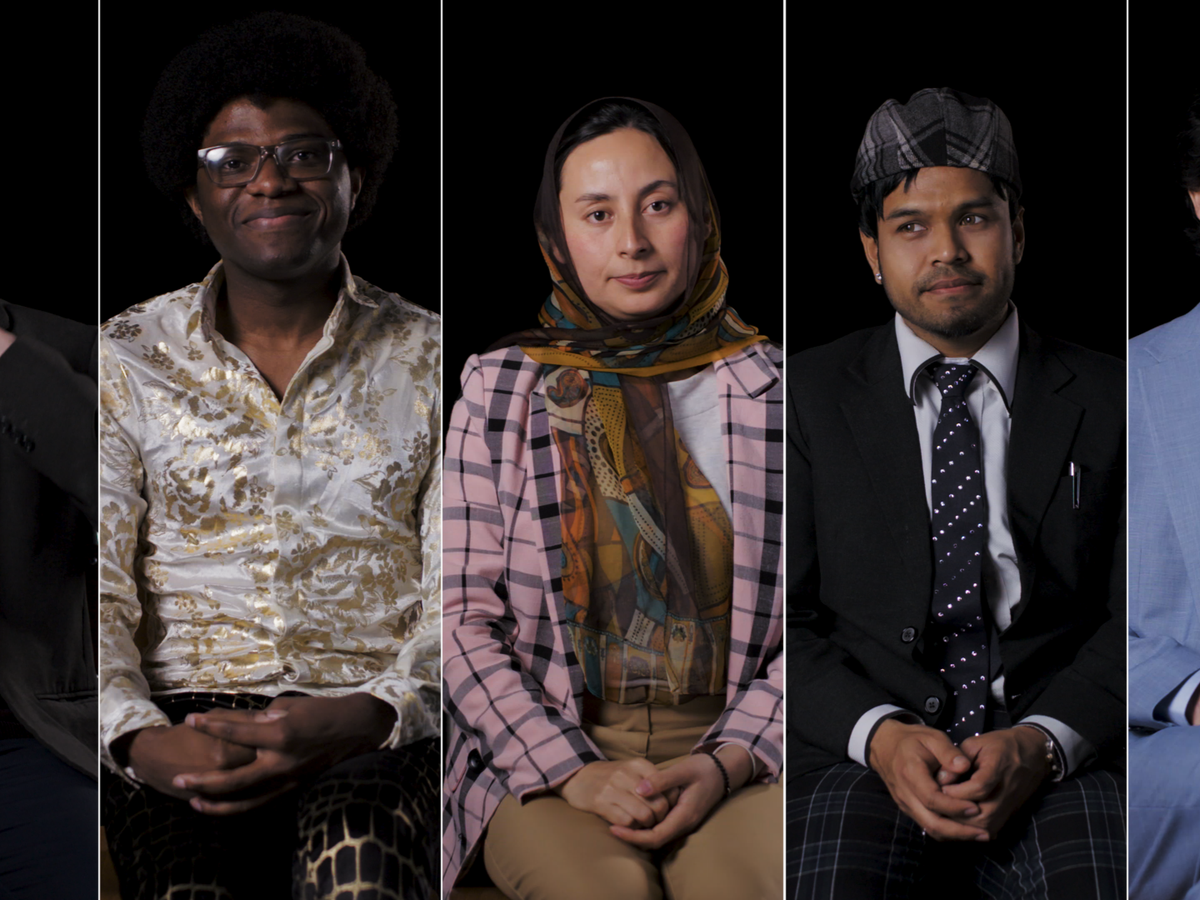Supporting refugees to rebuild their lives
Linklaters supports Breaking Barriers. Every donation will help make an impact by offering training and support for refugees in London to help them secure stable and fulfilling employment. Thanks for your contribution.
Background
Breaking Barriers was founded in 2015 in response to the lack of effective and comprehensive employment support for refugees. Their mission is to empower people of refugee background in the UK to acquire the knowledge, confidence and experience they need to secure stable, fulfilling employment.
Follow five refugees support by the charity in this video as they start new lives and navigate temporary accommodation, employment, love, family and education in the UK.
Refugees and asylum seekers in the UK
- As of November 2022 there were 231,597 refugees, 127,421 pending asylum cases and 5,483 stateless persons in the UK. The war in Ukraine has driven a large increase from the previous year, when there were an estimated 135,000 refugees.
- Over 70,000 people claimed asylum in 2022. Just over 23,000 have been granted right to remain in the country so far.
- Of the top 10 nationalities applying for asylum, half have a grant rate above 80% (Afghanistan 98%, Iran 80%, Syria 99%, Eritrea 98%, and Sudan 84%).
On average, Breaking Barrier clients waited nearly 3 years to hear the outcome of their cases. While they wait, most asylum seekers are not permitted to work, cannot choose where they live, and rely on government cash grants equivalent to £5.84 per day for food, sanitation and clothing.
Alternatively, many asylum seekers end up in detention centres, where conditions for them can be extremely challenging. Over 23,000 people were placed in detention centres in 2022.
Barriers to employment for refugees
Refugees living in the UK face a variety of barriers to employment, including:
- employment gaps on CVs due to the lengthy asylum process
- lack of UK work experience
- limited understanding of the UK job market and no professional networks
- non-recognition of qualifications
- language barriers
- cultural differences
- public misconceptions and discrimination.
84% of refugees reported that they did not have sufficient English language ability to get a job. Support with these issues is very limited – in some places waiting lists for English classes are two years long, and the majority of those in classes say that the classes they are doing are not sufficient to learn the language.
As a result, refugees in the UK are 4 times more likely to be unemployed than people born here, and on average earn about half the amount per week that UK nationals do. This is despite high levels of qualifications and skills (38% of refugees from Syria living in the UK have a university degree, for example).
Organizer
B
Breaking Barriers
Beneficiary

